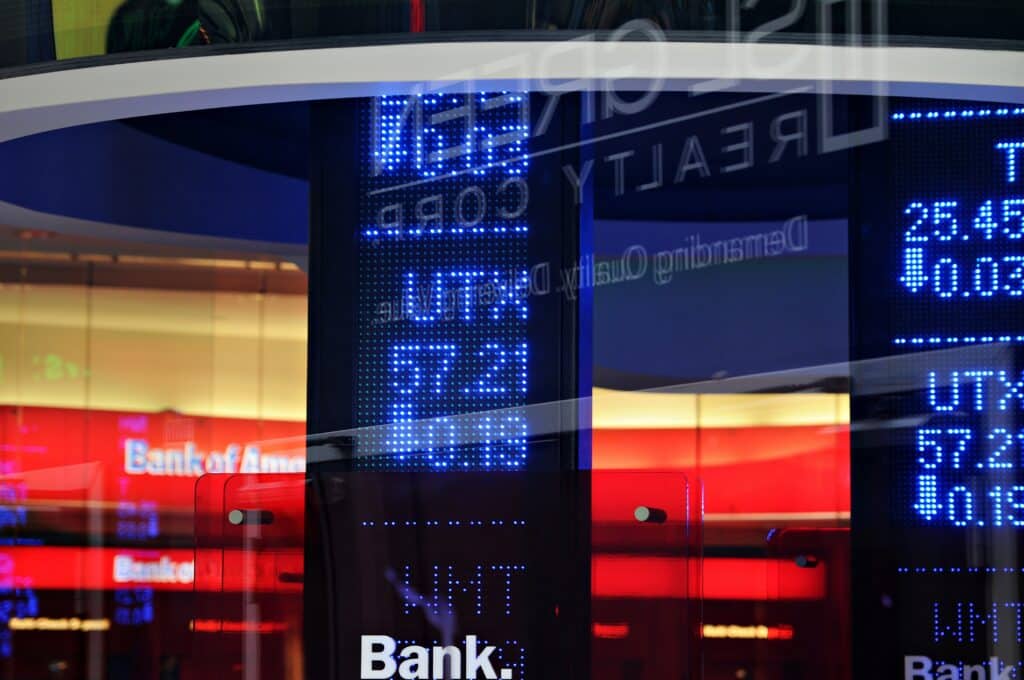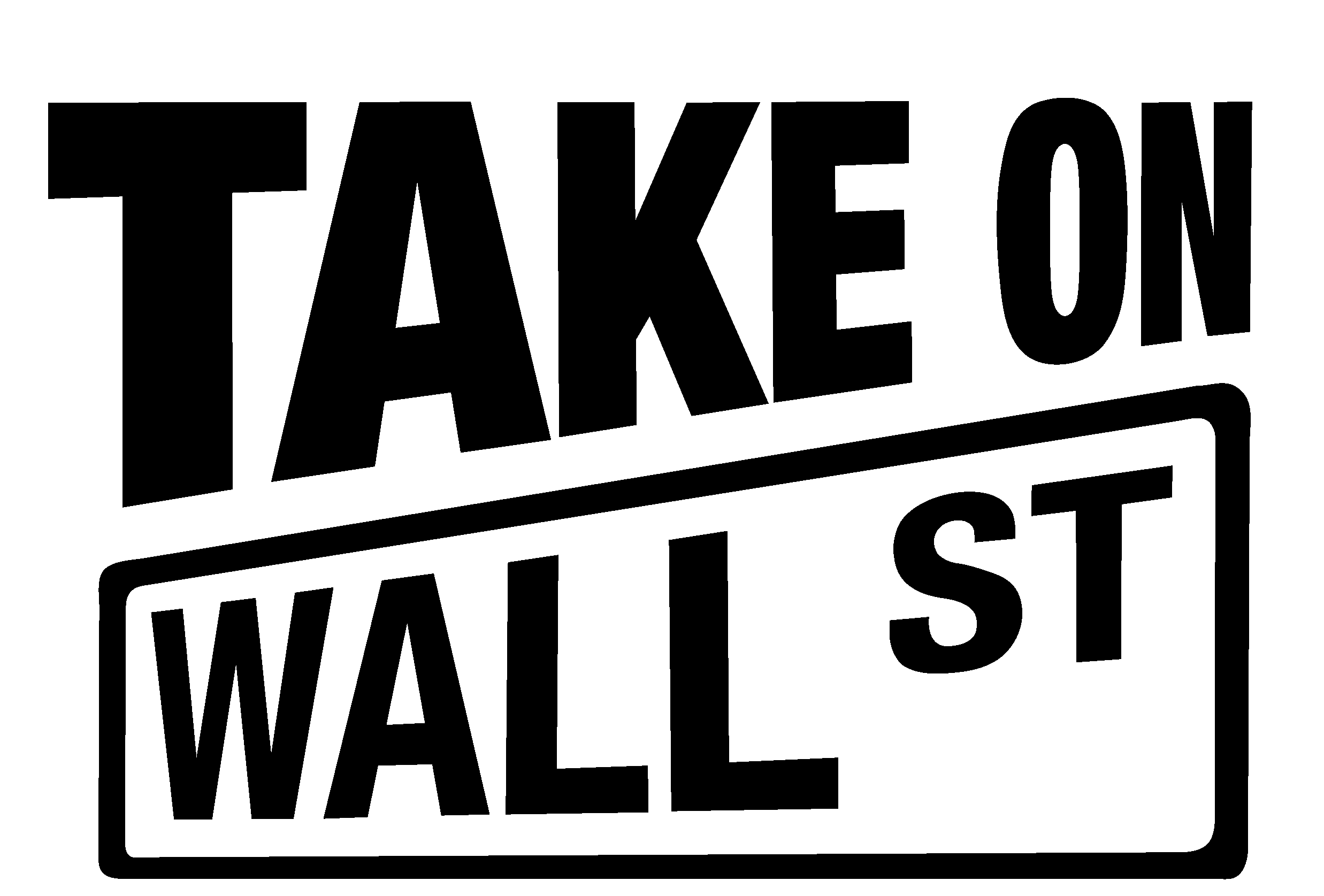This post was authored by Jessica Church.
At Take On Wall Street, we’re excited about the growing consensus among policymakers that stock buybacks are harmful to workers, consumers, and the economy writ large.
But before we get any further, what is a stock buyback and why does it matter?

The term “stock buyback” refers to the practice of corporations purchasing their own company’s stock on the open market in order to decrease the total number of shares available. This has the effect of increasing the individual share price of the remaining shares held by investors. (For a quick video explainer, click here.)
If this sounds like a way to manipulate the market and put more money in the pockets of investors, well, it is! Stock buybacks for the purpose of raising stock prices were functionally illegal from the Great Depression up until 1982 when the Reagan administration instituted a rule giving corporate executives freedom to engage in this manipulative practice (that should tell you all you need to know).
Moreover, shareholders tend to be disproportionately wealthy, white, and male, so stock buybacks also exacerbate economic inequality and the racial wealth gap.
At Take On Wall Street, we’re not against increased value for shareholders. After all, many working Americans’ pensions and retirement savings are wrapped up in the stock market and increased share value over the long term is a good thing!
HOWEVER, when a corporation is engaging in stock buybacks – a manipulative exercise – instead of investing in workers, improving products and services, and strengthening the company for long-term growth, then it’s a big problem.
Here are two deadly examples of how buybacks affect the rest of us:
- Between 2019 and 2021, the baby formula producer Abbott saw profits increase by 94%! That’s a huge amount. During that same period, Abbott detected harmful bacteria in its products eight times. But instead of using that money to improve quality control or update factory equipment, the company announced $5 billion in stock buybacks and increased dividends for shareholders by 25%. Nine babies died.
- In the decade leading up to 2020, airline manufacturer Boeing spent more than $43 Billion in profits buying back its own stock to increase share price. That is $43 billion in profits that did NOT go to workers’ wages or improved product safety (remember, this company makes planes!!!) During this same time period, there were two separate tragic Boeing 737 crashes leading to the deaths of 346 people.
This is serious stuff. Stock buybacks prioritize short-term shareholder gain at the expense of people’s safety, workers’ wages, better workplace conditions, market growth, improved efficiency, and more that would all contribute to real long-term value creation.
This is why we’re THRILLED that on May 25, 2023, Congressman Chuy García (D-IL) reintroduced the Reward Work Act. This bill bans stock buybacks on the open market, which would make it harder for companies to manipulate their stock price. It also empowers workers to elect ⅓ of corporate boards, giving people who work at the company more influence over how their employer does business.
Congressman García’s bill isn’t the only piece of legislation that acknowledges how harmful stock buybacks are (though his bill goes the furthest). Other bills include:
- The CHIPS and Science Act, which Biden signed into law in August of 2022, contains language that prevents companies that receive public funds for the purpose of revitalizing semiconductor manufacturing in the United States from using that money to purchase their own stock. The bill implements the principle that public money should support the public good, not stock buybacks to put more money into investors’ pockets.
- The Inflation Reduction Act implemented a 1% tax on stock buybacks. While eliminating the behavior is the ideal, and experts determined that the ultimate tax rate settled on in the bill is too small to influence behavior substantially, it does signal to companies that there will be some price to pay for this bad behavior. Establishing this tax may also make it easier to increase it later.
- The Stock Buyback Accountability Act, introduced by Senators Sherrod Brown (D-OH) and Ron Wyden (D-OR) this past February, would increase the taxes that a publicly-traded company must pay when buying back its own stock. The thinking here is that higher taxes may dissuade companies from choosing this option to increase their stock price for shareholders and they’d instead opt to reinvest profits into strategies for long-term economic growth.
The Take On Wall Street coalition of labor, community, faith, racial, and economic justice groups applauds these efforts and enthusiastically supports Congressman Chuy García’s (D-IL) Reward Work Act. By banning stock buybacks on the open market, it will push companies to invest their profits into research and development, higher wages for employees, better working conditions, and improved products and services. The harder we make it for Wall Street executives to engage in short-term self-dealing and the easier we make it for them to invest in the future, we start to turn corporate decision-making in the right direction. This will create a fairer economy for workers and consumers alike. Let’s keep the momentum going.

Leave a Reply